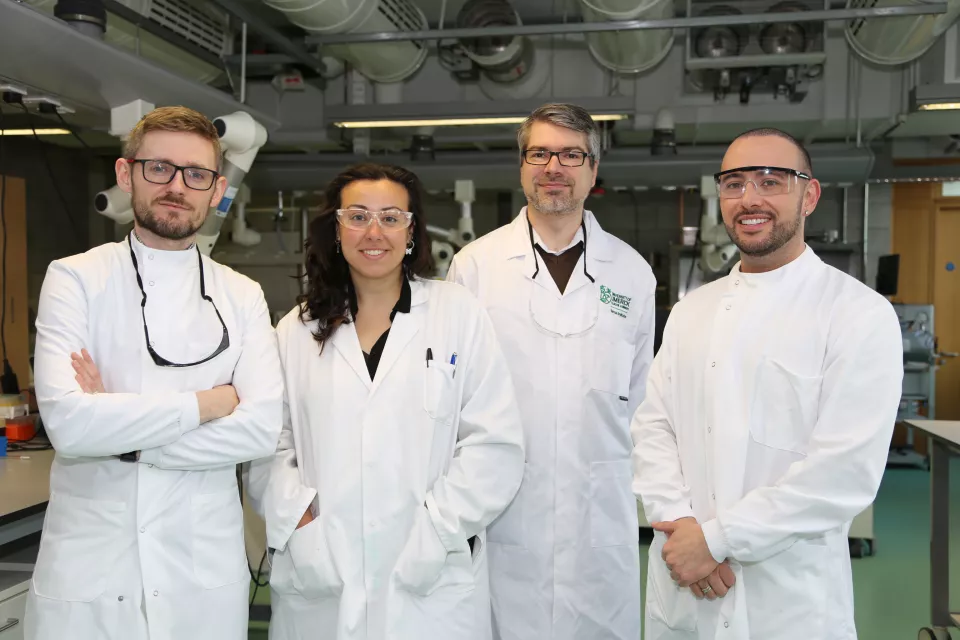
Alexandra Karadimou is undertaking a PhD research scholarship in the Faculty of Science and Engineering—one of 10 funded PhDs focused on key areas of sustainable development, and the themes outlined in the United Nations Sustainable Development Goals (UN SDGs).
A native of Greece, Alexandra’s project is titled ‘Sustainable antioxidant and anti-neuroinflammatory bioactive compounds from Irish industrial by-products from cell systems to innovative functional foods’ and is a cross-faculty collaboration involving experts in Food Science and Health and Neuroscience (under the supervision of Dr John Mulvihill, School of Engineering; Dr Andreas Grabrucker and Professor Daniel Granato, Department of Biological Sciences).
The project aims to screen novel beneficial bioactive compounds, (which are chemicals found in certain plants and foods that may promote good health) and evaluate their ability to cross the blood-brain barrier, which is crucial for the treatment of brain disorders.
“The project is combining expertise in neuroscience and functional food within the Faculty of Science and Engineering. We are extracting bioactive compounds from sustainable plant-based sources, such as seaweed and apple pomace found in waste products from Irish industry. Using brain cells such as astrocytes, we will evaluate the antioxidant and anti-inflammatory effects of these compounds. Once we identify the most promising compounds, they will be tested using a novel cell barrier model that closely mimics the blood-brain barrier physiology. This research is being carried out in the certified BioLabs in the Bernal Institute which guarantees an overall green approach."
The makeup and compounds of the food can differ depending on where the food is sourced
“If you have seaweed from water that is polluted you may have fewer bioactive compounds or depending on the age or type of tree that you sourced the apple from they can be different, however, the main profile remains more or less the same.”
Once the beneficial compounds have been identified and their biological effects evaluated it is hoped that they can be incorporated into a functional food (food that has been added to that will provide a health benefit), for example a fortified drink, that could be consumed to help prevent the onset of neurological diseases.
“If these beneficial compounds can reach the brain, it is hoped that they can help reduce oxidative stress as this can lead to inflammation of the brain and the development of neurological disorders. At the moment I am only starting out on this project but hopefully this research will help protect people’s health in the future, as prevention is always better than cure.”
From an early age, Alexandra was interested in biology, diet, and nutrition:
“When I was in high school, we had again to choose a specialisation. I was really interested in nutrition and diet because I knew that food can have a real impact on our health.”
Alexandra went on to complete her Bachelor’s degree in nutrition and then travelled to the University of Wageningen in the Netherlands to carry out a Masters in molecular Nutrition and Toxicology, before moving to Ireland to accept a PhD Scholarship at the University of Limerick.
“In 2015 due to the economic crisis, capital controls were introduced in Greece so it was very difficult for someone just starting out in their career. After I completed my Master’s, I had heard so much about the beauty of Ireland I really wanted to experience it for myself and the economy here had recovered quickly, so I started applying for roles. I’m very glad to be here and be researching such an interesting topic.”
